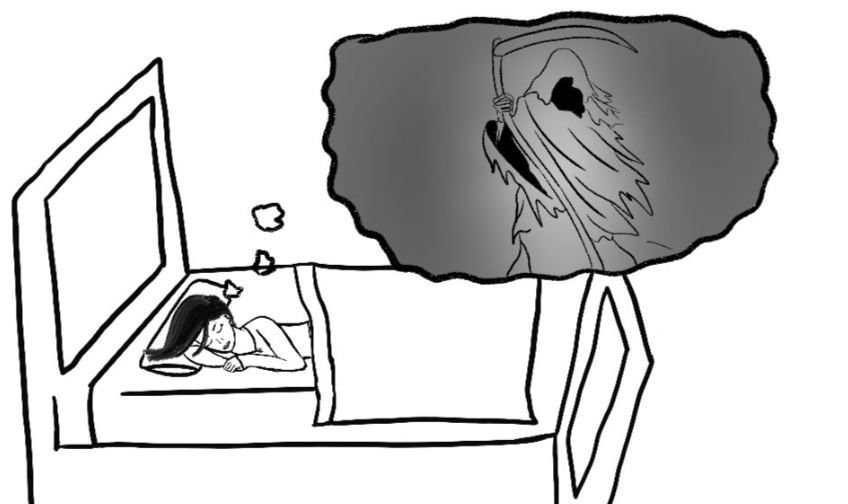Every night when we close our eyes, we are led to an unconscious simulation that can often replicate and represent ideas and emotions. Although nobody knows the true meaning behind this or what it means, that hasn’t stopped scientists from exploring the theories of our dreams.
Within the first few moments of waking up, it’s easy to recognize whether or not we’ve had a dream. However, the chemical signals in the brain that amount to the experience of dreams tend to fade as we awaken, leading to most people believing they don’t dream. The truth is though, even if it’s not remembered, we all dream, multiple times each night.
Evidence and new research have speculated that dreams may serve purposes. According to Medical News Today, dreams may cater to memory reprocessing, developing cognitive abilities, reflecting unconscious mental function and integrating memories into autobiographical memory.
“Many times dreams are contradictory or may seem ridiculous,” Psychology Teacher Arturo Tenacio said. “But they have a purpose and are supposed to give you messages.”
Autobiographical memories refer to the memories of one’s personal history including but not limited to; experiences from an individual’s childhood, their first time driving a car or even one’s social security number.
“Usually when I throw up at practices it means I’m pushing myself a lot and that I’m doing good workouts and getting better,” junior Kiarah Scott said. “I had a dream one night that I was throwing up after track practice and the next week I did really well and I got my time down.”
It can be difficult to decipher the meaning and underlying factors of dreams, however, there are many theories, most famously from Austrian neurologist Sigmund Freud. According to Freud, dreams are representative of the imaginary fulfillment of a wish in early childhood.
Freud also claimed that dream content comes in two types: manifest and latent. Latent content refers to underlying or hidden meanings of dreams. Manifest content refers to the dreams that the conscious individual remembers experiencing.
The physiological theory of dreaming, also developed by Freud, covers how the brain processes information and how it manifests into a dream. It states that dreams aid memory and consolidate things that were previously experienced.
It’s common that dreams may have symbols, such as teeth falling out, being naked or even dying. Since dreaming is different for everyone, so are symbolic meanings, however there is an idea of what common symbols mean. Symbols aren’t necessarily direct but can indicate something deeper.
According to the world of lucid dreaming, a frequent dream involving school could indicate stress or self-doubt. This can also go for constant dreams about exams or work assignments. Showing up to school naked is another dream that often occurs, even in those who may have graduated years ago. This vulnerable state most likely implies insecurity or anxiety about a situation.
More intense dreams like dying don’t always suggest the person dreaming is thinking of death, rather they want a new beginning in their life and are ready for a change. Similarly, teeth falling out could explain repressed feelings for a person or situation.
“My mom was far away and I kept walking to her. She was standing still but she kept moving farther away and a year after I had that dream my mom passed away,” junior Dyana Brouard said.
It’s important to note that symbols in dreams cannot be measured scientifically, and we cannot be sure what they mean, however through extensive research, psychoanalysts have devised ideas of what these symbols could mean.
“One thing that’s very important about dreams is not to get stuck with them,” Tenacio said “once you get up in the morning, move on with your day and don’t overthink the dream.”
It’s impossible to replicate a dream as it is almost impossible to study them. Dreams are personal, subjective, irrational and difficult to directly study with scientific objectivity. However, the process of self awareness and reflection will better link you to your inner self, helping you to interpret the true meaning of your dreams.






























